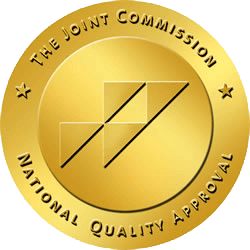Clinical depression has become increasingly common among adolescents. In fact, there has been a 37% increase in clinical depression among Americans ages 12 to 17 between 2005 and 2014. In the past year, more than 3 million adolescents experienced at least one episode of depression. Overall, the prevalence of depression among adolescents has continued to increase dramatically since the 1970s and 1980s, which can make it difficult for parents to identify the symptoms of depression in their teens. Mental health stigmas still discourage adults and adolescents alike from reaching out for help. Even though depression can become chronic, early dual diagnosis treatment in LA can greatly limit and reduce the severity of symptoms of depression and help you find recovery.
What are the Symptoms of Depression?
Teens are notoriously moody, so how do you know if you or your teen are demonstrating symptoms of depression or typical adolescent mood swings? Symptoms of depression are more intense and last longer than a couple of hours or a couple of days. The most common symptoms of depression in teens include:
- Increased anger or frustration
- Losing interest in hobbies
- Increased sensitivity or signs of low self-esteem
- Sleeping much more, or much less, than normal
- Significant changes in appetite
- Complaining about constant headaches, stomach aches or body aches
- Isolating from friends and family members
Signs of depression can sometimes be hard to identify, especially if you or your teen are concealing their symptoms. Self-harming behavior, such as cutting, is not only a serious symptom of depression but also may be hard to uncover if the wounds are concealed under clothing. Other symptoms of depression may include threats of self-harm or abnormally pessimistic world views. Feelings of hopelessness and isolation are also common signs of depression.
How is Depression Treated?
There is no known cause of depression, but certain environmental and genetic factors can increase your risk of developing depression. If you have a close family member with depression, or deal with significant stress, you are more likely to develop symptoms of depression. Depression is linked to a neurotransmitter imbalance, specifically your brain’s serotonin levels. Medications, such as anti-depressants, increase the amount of serotonin in your brain, which can help elevate and improve your mood. Other ways that depression is treated include:
- Cognitive-behavioral therapy
- Dialectical behavioral therapy
- Individual counseling
- Art and music therapy
- Stress management
Symptoms of depression can increase your risk of suicide, which is why early treatment is essential. The sooner depression is treated, the better the recovery outcomes can be. Depression can increase you or your teen’s risk of abusing drugs and alcohol, which can result in a co-occurring disorder. Co-occurring disorders typically require dual diagnosis treatment in LA. With proper treatment, most symptoms of depression decrease within weeks.
Finding Help Today
Depression is a serious problem that impacts more than 15% of teens. Symptoms of depression can cause significant issues and prevent you or your teen from thriving. If you or your teen is struggling with depression, finding help is only a phone call away. Call us today at 877.466.0620 to find out more about our nationally recognized mental health treatment programs.


